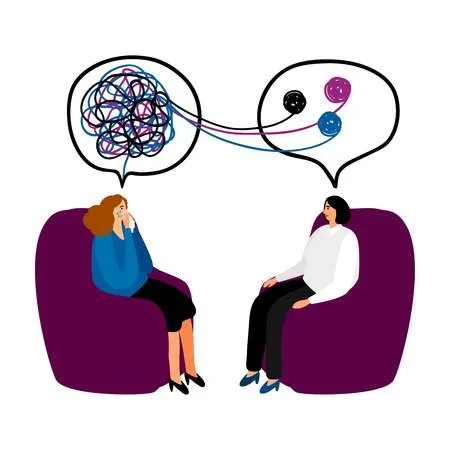What Is Therapy?
Therapy, also known as psychotherapy or counseling, is the act of meeting with a mental health professional to address difficult issues related to behaviors, feelings, thoughts, sensations, or relationships. Beginning therapy can be difficult and requires the courage to ask for help. No matter what issues you may be facing, therapy can help you make changes and move toward a healthier, more fulfilling life.
Therapy Options
There is no single blueprint for therapy. Everyone is unique and brings with them unique issues. It is important to talk to the therapist about the therapies that they use to find something that you are comfortable with. There are numerous options available, but some of the most common are:
Psychodynamic – Originally started by Freud, this therapy focuses on talking and free association of thoughts. The idea is to bring make known any unconscious behaviors so they can be addressed.
CBT – This theory is based on the idea that by changing negative patterns of thinking to positive ones, we can alter our behaviors and act in healthier ways. This therapy is general short term and is goal oriented.
Attachment Based Therapy – This is based on the development of trust and focuses on the expression of emotions. The therapy repairs early developmental attachment issues which allows for healthier adult relationships.
EMDR – Treatment involves movement of the eyes from side to side. This form of therapy is intended to reduce the emotionality of traumatic events. The focus is not on the event itself but on the emotions and symptoms a person experiences due to the event.
Relational Therapy – The idea that emotional well-being requires mutually satisfying relationships with others is the basic idea for this therapy. Social factors such as race, class, culture, and gender are considered and the effect these aspects have on a person’s life and relationships is examined.
Somatic Experience – The focus here is on the connection between the body and the mind. In addition to talking, mind-body exercises and physical techniques are used to relieve negative effects on overall wellbeing
Modalities
Regardless of the therapy you choose, there are four main modalities. One is individual therapy where a person meets with the therapist one-on-one. Next is couples therapy, which involves those in an intimate relationship with each other. This usually involves two people, but could involve more in the case of a polyamorous relationship. Then there is family therapy which can involve all or part of a family unit, as well as extended family members if necessary. Finally, there is group therapy where a therapist meets several people at the same time. Group therapy is usually formed around a specific issues or need that all group members share.
Getting Started
Deciding to start therapy takes courage. Some people think that going to therapy means they are “crazy.” Others think that friends and family will judge them for attending therapy. These are concerns that everyone has when they start out. Most people, once they have started, find that these fears were exaggerated or unfounded. Many people attend therapy regularly and greatly benefit from it. Asking for help is nothing to be ashamed of and having someone who can listen to you with empathy can be empowering.
When you are ready, there are few things to keep in mind. The first is to make sure that the therapist you are considering is licensed in your state. You can also view their profile in a professional directory or look at their website to see if they specialize in your area of need. For therapy to be useful, you need to trust your therapist and feel comfortable talking with them. It is useful to speak with them on the phone, or ask if they offer a initial consultation for you to “try them out.”
Another consideration when starting therapy is understanding that it is a commitment by both you are your therapist to work together. Understand that therapy can make things feel worse before they start to feel better. This is part of the process, and worth the effort. Once you begin working through your issues, you can begin to see improvements in feelings and behaviors that will lead you to a whole-hearted and fulfilling life. Therapy is nothing more than a conversation to help you become the best version of yourself that you can be.
Therapy is nothing more than a conversation to help you become the best version of yourself that you can be.

